The tooth fairy is a welcome guest for any child who has lost a tooth. Not only will the fairy leave a small gift under the child’s pillow, but they be assured of a replacement tooth in a few months. Unfortunately, the scenario is quite different for adults grappling with a loss of teeth. Luckily, there may be some hope thanks to a new study performed by scientists at Kyoto University and the University of Fukui.
A dental breakthrough
While the typical adult mouth houses 32 teeth, approximately 1% of the population exhibits variations of them, either possessing more or fewer teeth due to congenital conditions. Researchers have delved into the genetic factors behind cases of excessive teeth, seeking valuable insights into the potential regeneration of teeth in adults. This study is the first to show that monoclonal antibodies can help regrow teeth. It suggests a new way to treat a dental problem that currently requires implants and other artificial solutions.
A bit of science
The research team disclosed that an antibody targeting a specific gene, known as uterine sensitization-associated gene-1 (USAG-1), can induce tooth development in mice affected by tooth agenesis, a congenital condition. The findings were published in the journal, Science Advances.
As per Katsu Takahashi, a senior lecturer at the Kyoto University Graduate School of Medicine and one of the principal contributors to the study, the essential molecules crucial for the development of teeth have already been pinpointed. “The morphogenesis of individual teeth depends on the interactions of several molecules including BMP, or bone morphogenetic protein, and Wnt signaling,” says Takahashi.
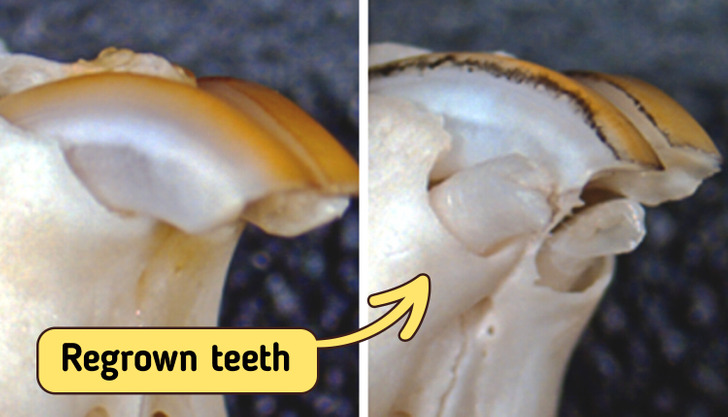
On April 13, 2021, the University of Kyoto posted its first pic of newly-grown teeth in mice.
BMP and Wnt are involved in more than just tooth development; they affect the growth of organs and tissues early in the body’s development. Because drugs affecting them directly might have broad side effects, scientists are cautious. To find a potentially safer method, researchers focused on the gene USAG-1, thinking that aiming at factors countering BMP and Wnt specifically in tooth development could be more precise.
“We knew that suppressing USAG-1 benefits tooth growth. What we did not know was whether it would be enough,” added Takahashi.
The first results
Scientists looked at how different monoclonal antibodies affect USAG-1. Monoclonal antibodies are often used to treat things like cancer and arthritis and for making vaccines. Tests with this antibody showed that BMP signaling is crucial for deciding the number of teeth in mice. Also, just one treatment was enough to grow a whole tooth. Further tests confirmed these positive results in ferrets too.
“Ferrets are diphyodont animals with similar dental patterns to humans. Our next plan is to test the antibodies on other animals, such as pigs and dogs,” explained Takahashi.
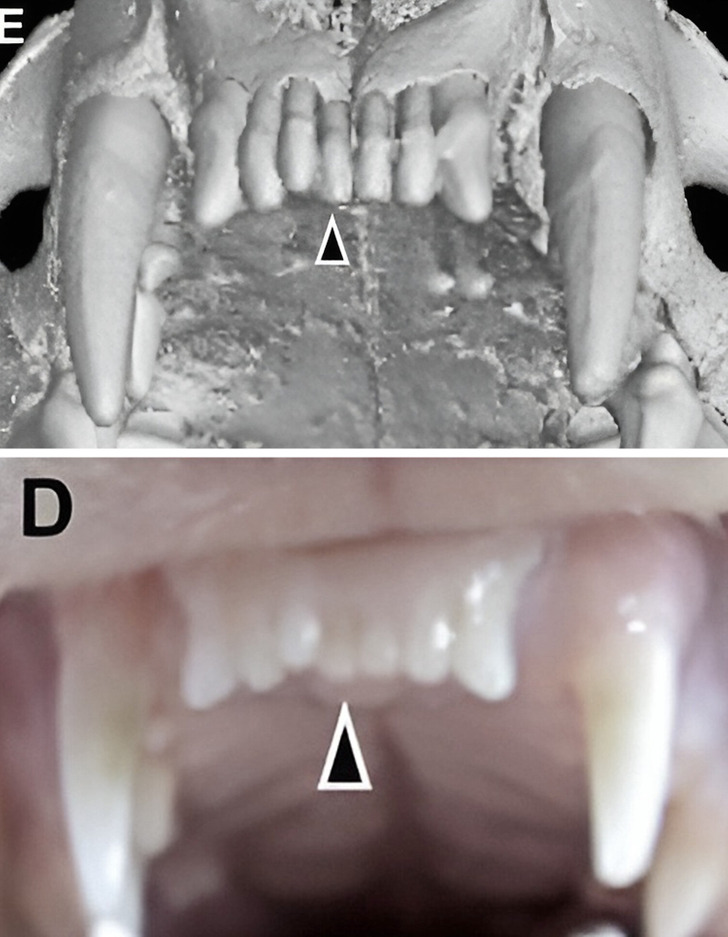
Fully regrown frontal teeth in ferrets
The next steps
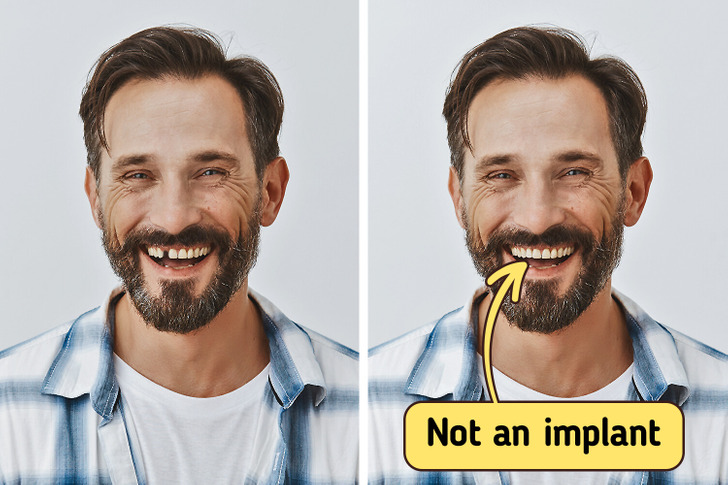
Now, scientists are going to test the drug on healthy adults. If that goes well, the team plans to try it on kids aged 2 to 6 with a rare tooth problem called anodontia, a genetic disorder defined as the absence of all teeth. These kids will get one shot of the drug to see if it makes their teeth grow. If everything works out, the medicine might be approved by 2030.
Takahashi sees the new medicine as an additional choice for individuals who are missing some or all of their teeth.
“The idea of growing new teeth is every dentist’s dream,” Takahashi told the Japanese newspaper, The Mainichi in June this year. “I’ve been working on this since I was a graduate student. I was confident I’d be able to make it happen.”
So hopefully, by the year 2030, humans will get a chance to have their third generation of teeth grown and say goodbye to implants. Until then, make sure to keep your teeth strong and healthy — this article will help you with that.
Preview photo credit KyotoU_News / Twitter
Footage Of Demi Moore Kissing 15-Year-Old Boy Leaves People Cringing

People have cringed at footage of Demi Moore kissing a 15-year-old boy.
Resurfaced on social media, the event features the 19-year-old actress from Indecent Proposal attending her co-star Philip Tanzini’s 15th birthday party from General Hospital.
In the enduring American soap opera, Moore portrayed Jackie Templeton from 1982 to 1984, and Tanzini, Jeremy Hewitt, from 1979 to 1982.
According to the MailOnline, the video was purportedly shot in 1982 and first broadcast on Entertainment Tonight.
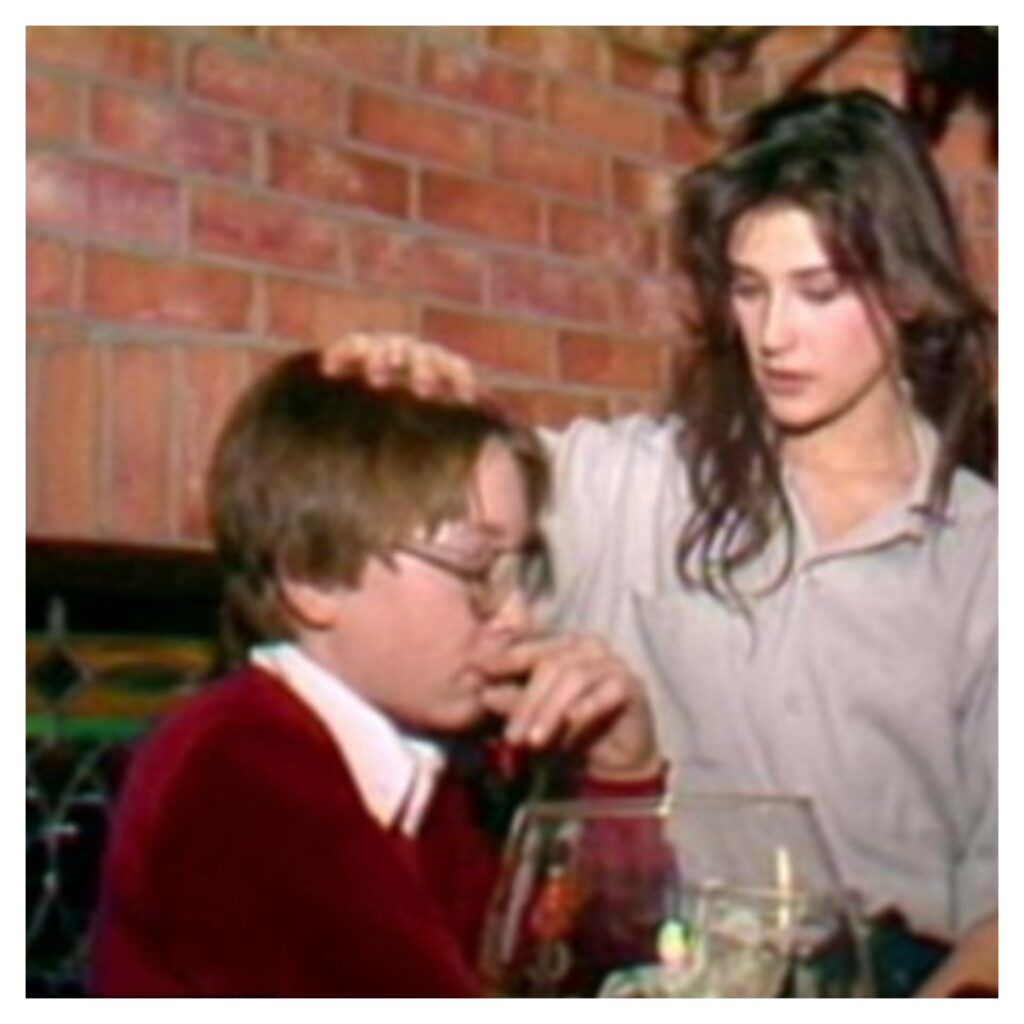
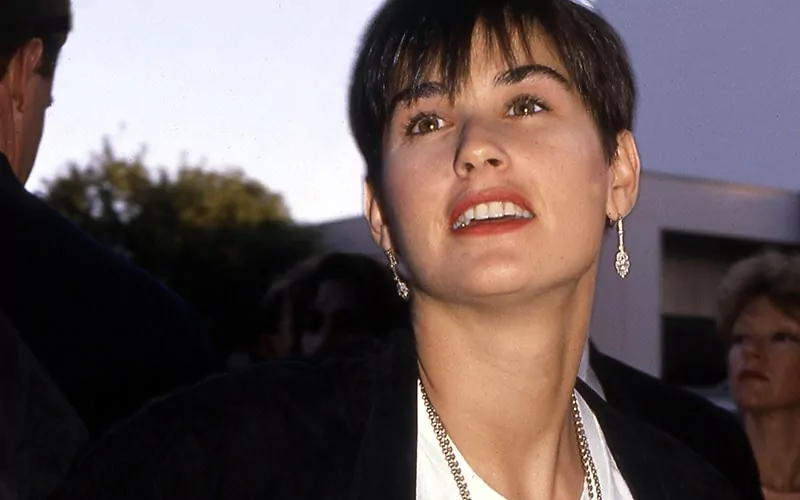
Since its January 2012 upload on YouTube, it has racked up an incredible 8.7 million views.
Throughout the evening, Moore can be seen kissing Tanzini three times throughout the entire clip.
Moore, who at the time was married to Freddy Moore, is heard in the tape praising her co-star and calling him one of her “favorite people.”
“I love Philip, and he’s the only one I love,” she declares. He is one of my most favorite persons, and I adore him so much.I adore him and he’s very wonderful.
“We’re going to get married, by the way. Don’t let her husband find out,” Tanzini continues.
Then Moore yells, “I can’t wait.”
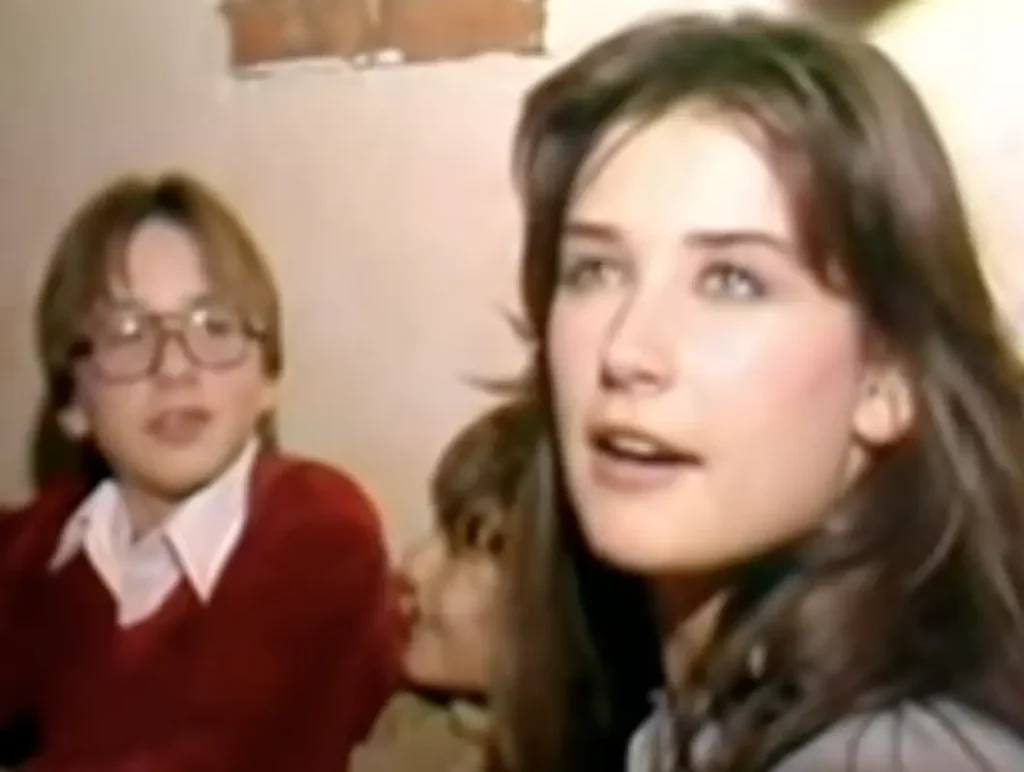
People have been calling the footage “weird” and “disturbing” on social media since it was discovered.
“This kiss wasn’t a quick peck on the cheek or even the lips,” wrote one observer. Nor was it an isolated incident.Furthermore, I could really care less that it came from a woman—especially Demi Moore. It’s unsettling, or at the very least quite uneasy.
Another commenter said, “There’s still something a little strange about this. This fifteen-year-old appears much younger. Who knows, though?

“Of course, young men dream about older women—even me at that age—but that doesn’t change the fact that it’s an adult kissing a child.”Those aren’t just fast kisses; those are genuine kisses. Too strange. Always ask questions.
A third added their thoughts, saying, “I thought that kiss was way too long and intimate.” made me feel uneasy.

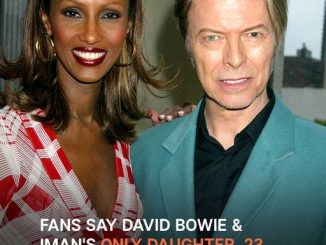
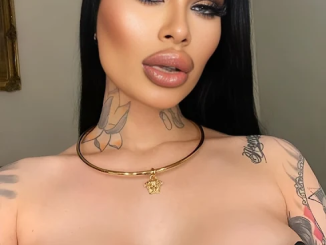
Leave a Reply